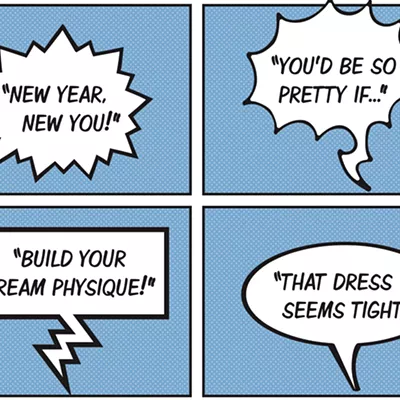It started with an introduction to a poem by my friend, Ruby. I was trying to write the word "English" without capitalizing the "e." I would type the word in all small letters, tap the spacebar, the e would go from small to large. The noun had control. After three tries, I gave up.
I tried to think of another way to write what I wanted to say without using the word. To go around the rules. But the point I needed to make was the point that autocorrect wouldn't allow. That the language we share forces us into accepting norms of a broader American culture, which is why it is so important to keep Native languages awake.
And american autocorrected to American. I was able to change it back, but not without consequence. A red line appeared beneath the word. And as I continued, adding notes about how the Osage words looked on the page, more red lines appeared. I right-clicked. The program insisted that instead of Osage, I meant dosage. I tried opening an online doc; that software suggested I add the word to my personal dictionary. It reminded me, as I hovered over the word english, that this word was always capitalized.
I think of a documentary I watched called Our Spirits Don't Speak English: Indian Boarding School and an interview in particular that begins, "My name is Andrew Windyboy. I'm a Chippewa Cree. I did two boarding schools, one in Wahpeton Indian School in Wahpeton, North Dakota, and the other one is Flandreau Indian School in Flandreau, South Dakota... They took me to the boarding school where I wasn't allowed to talk my Native tongue or practice my Native ways. Numerous times they put on this big old white, big huge white cone. They put it on there, it said 'dunce.' I didn't know what it meant. I didn't know english. They put it on me, made me wear it all over. Kids laughed at me. [They] took me away from all of that and punished me for talking... It was my first language. I didn't know any other language. And when I would talk, it came out, Cree would come out. Whenever I talked I would get hit. I got hit so much I lost my tongue, lost my native tongue...They beat me every day. Beat me badly.
"I hope someday somebody will hear me..."
That software... reminded me, as I hovered over the word english, that this word was always capitalized.
The software suggests, instead of Cree I mean Creed, Creek, Creep, Crete or even Crew. It suggests that I might even mean "free." The red line appears under Windyboy and suggests I mean windy boy. Another program says there is no reference for this word. Yet another, without my permission, changes Andrew's last name to Windsor. A subtle reminder of the assimilation era when given names were not acceptable, when english names were the rule.
I turn to another project. A conference meant to discuss traditional homelands, about acknowledgment of the Native people removed from that land. I am asking my friend, a Nimiipuu scientist to join me. I write, Dear Sapóoq'is Wíit'... not only does it take five extra keystrokes, but when I am done, I am corrected to Dear Susan. I chose to compose the note in the most popular, most used word processing software. It suggests that instead of Nimiipuu I mean "Miniplug, Maipu, or Minipig" all nonwords. Nimiipuutimt, Nez Perce language has been spoken here for more than 10,000 years, yet Microsoft (which always autocorrects a capital M) says there is "no reference," and yet I type luddites and it autocorrects... to Luddites.
A note at the bottom of the document says my writing is accessible, that it's "good to go." Yet those red lines, that tell me something is incorrect, and the blue dotted lines, that suggest I'm not communicating clearly, are pointing toward something else. And the other times when something I write is, without my permission, changed. When my words are ostensibly taken away. Erased. Perhaps those attempts toward correction are not as egregious as fists or dunce caps, but violence lives in their subtlety. constant correction toward colonialism. So I search for the ways to turn it off, to stop the suggestions that tell me I am wrong; is there a way to stop being corrected to whiteness? ♦
CMarie Fuhrman is the author of Camped Beneath the Dam: Poems and co-editor of Native Voices: Indigenous Poetry, Craft, and Conversations. She has published or forthcoming poetry and nonfiction in multiple journals and several anthologies. CMarie is a regular columnist for the Inlander, Translations Editor for Broadsided Press and Director of the Elk River Writers Workshop. She is Director of Poetry at Western Colorado University, where she also teaches Nature Writing. CMarie is 2021-23 Idaho Writer in Residence.

























